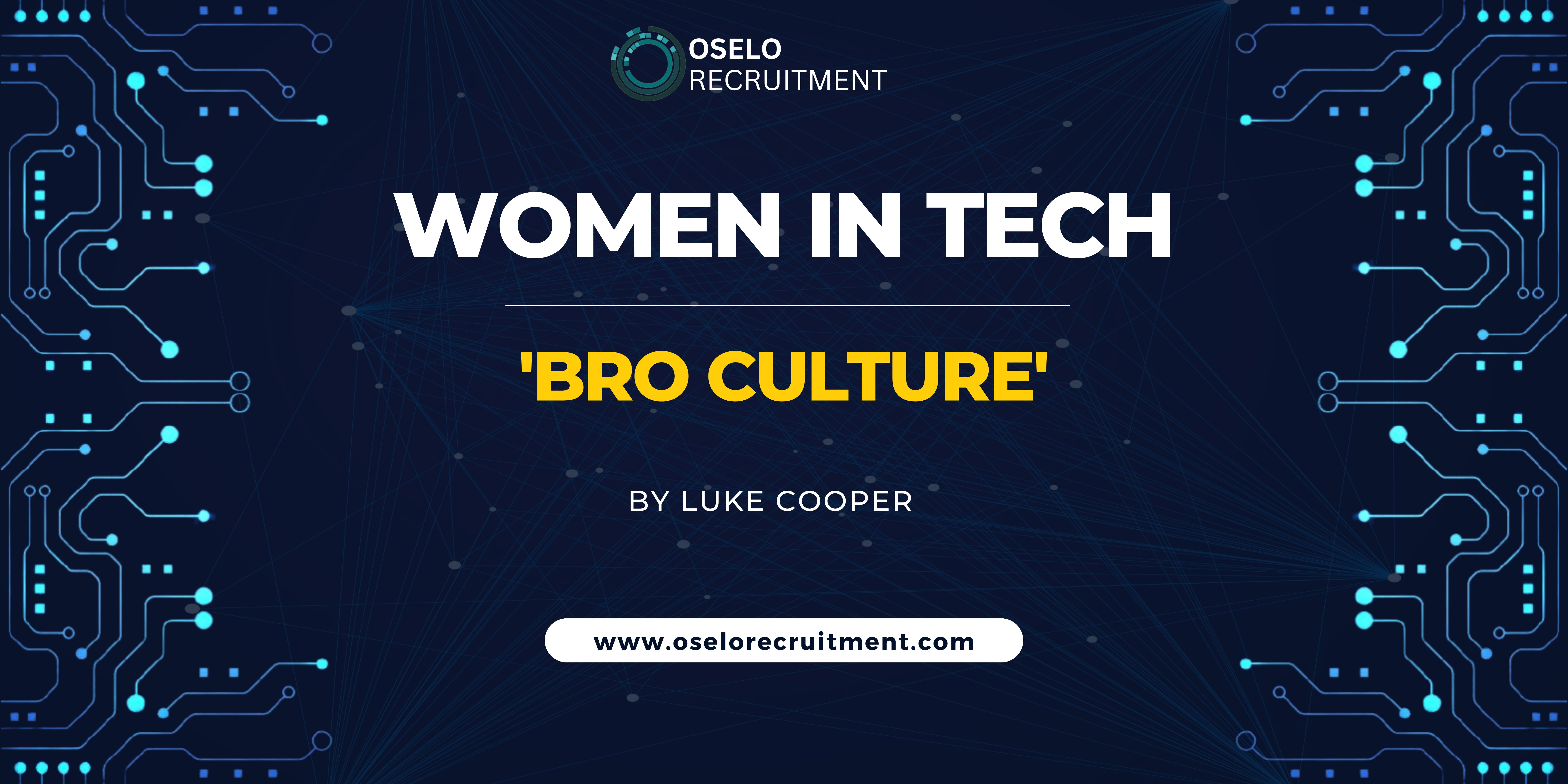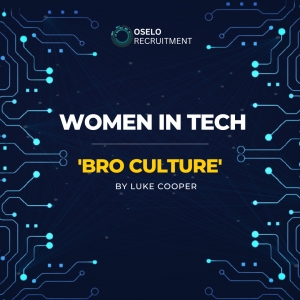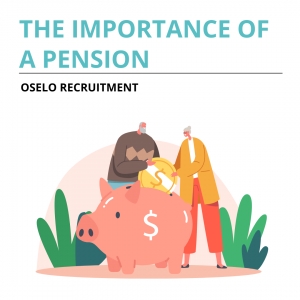When to Know it's Time for a New Hiring Process

As an employer, it can be hard to know when it is the right time to re-evaluate your company’s hiring process.
Having a strong hiring strategy is one of the most important processes your company will have. It's not just about finding people with the right skills and qualifications. It's also about finding candidates who resonate with your brand.
There are a few signs that it's time to re-evaluate and adjust your hiring process:
High Turnover Rates
If you notice a consistent pattern of employees leaving shortly after being hired, it could be a sign of a flawed hiring process. You might be attracting the wrong candidates or not providing a clear enough picture of the job and company culture.
Skill and Job Mismatch
Are new hires struggling to settle in and lacking essential skills for their role? This could be due to a mismatch between the skills needed for the role and the candidate's skills. It's also possible that your job descriptions are unclear or your technical tasks are too challenging or not focused on the right skills.
Candidates are choosing other companies before you can make them an offer
Lengthy hiring timelines can be frustrating for both candidates and the internal team. In a competitive job market, top talent will get snapped up quickly. Streamline your process without cutting corners on quality control.
Lack of Diversity and Inclusion
If you're not seeing diversity in your candidates, it could be time to rethink your sourcing channels. Diversity brings a wide range of perspectives and ideas to your company.
Negative Feedback
It's never nice to hear negative feedback about your company or your hiring process, but it can be extremely valuable. Consider surveying candidates or having a section on your application where they can provide feedback. This data can help you identify areas for improvement.
Decline in Quality of Hires
If you see a decline in the quality of candidates you're hiring or sourcing, it's time to reassess the requirements for the role and the platforms you use to advertise the role.
A Hiring Process Which Reflects an Old Market
The job market is constantly changing, and so are candidate expectations. If your hiring process hasn't moved with the times, it could be off-putting to candidates.
A flexible and effective hiring process is essential for attracting and retaining top talent. By regularly reassessing and updating your hiring strategies, you can ensure that your company remains competitive and appealing to the best candidates in the market.
Everything You Need to Know About Cover Letters

What Exactly is a Cover Letter?
A cover letter is like a friendly hello to the hiring manager. It's a one-page document you send alongside your resume when applying for a job. But, it's more than just a formality. It's your opportunity to introduce yourself, explain why you're perfect for the job, and showcase your enthusiasm.
Why Are They Important?
Just like everything, there are pros and cons to submitting a cover letter with your CV when applying for a role.
Pros:
Personal Touch: Cover letters allow you to connect with the hiring manager on a personal level. You're not just another name on a resume; you're a real person with real interests.
Highlight Skills: They let you highlight skills and experiences that might not fit neatly into your resume. It's where you can share stories and examples that show you're the right fit for the job.
Address Gaps: If you have gaps in your work history or are changing careers, a cover letter is where you can explain these transitions and make your case.
Show Enthusiasm: A well-written cover letter shows that you're genuinely excited about the job and the company. Employers love to see that enthusiasm.
Stand Out: A thoughtful cover letter can set you apart. It's your chance to be memorable for all the right reasons.
Cons:
Time-Consuming: Writing personalized cover letters for each application can be time-consuming, especially when applying to multiple jobs.
Not Always Read: Some employers may not read cover letters, particularly if they receive a high volume of applications. In such cases, the effort put into crafting one may not yield significant benefits.
Quality Varies: Not all cover letters are well-written or impactful. A poorly written or generic cover letter can do more harm than good.
Redundancy: Sometimes, cover letters reiterate information already present in the resume, making them redundant and potentially frustrating for employers.
Expectation of Perfection: A strong cover letter is expected to be error-free, which can lead to added pressure for candidates.
Every hiring manager has a different opinion on cover letters and not all companies require them, if you are going through a recruiter, we recommend you ask if they think it will strengthen their profile!

The automotive industry is undergoing a major transformation, with the rise of electric vehicles (EVs), self-driving cars, and other new technologies. This transformation is creating a need for new skills and talent in the industry.
According to a recent report by Randstad, the demand for automotive engineers is surging. The report found that the demand for auto engineer roles increased by 35% in the first half of 2023, compared to the same period in 2022. This was due to a number of factors, including the increasing adoption of EVs and self-driving cars, as well as the global chip shortage, which has slowed down the production of new cars.
The demand for automotive engineers is expected to continue to grow in the coming years. This is due to the increasing adoption of new technologies in the automotive industry, such as artificial intelligence, machine learning, and 5G. These technologies require different skills and knowledge than traditional automotive engineering, and there is a shortage of engineers with these skills.
As a result of this growing demand, the automotive industry is facing a shortage of skilled talent. This is a major challenge for the industry, as it is preventing it from fully capitalising on the opportunities presented by new technologies.
To address this challenge, the automotive industry is investing in training and upskilling programs. These programs are designed to help existing employees develop the skills they need to work on new technologies. The industry is also partnering with universities and colleges to develop new training programs.
The automotive industry is also working to attract new talent to the field. This is being done by increasing awareness of the opportunities in the industry and by offering competitive salaries and benefits.
The surging demand for automotive talent is a sign of the industry's transformation. The industry is moving towards a more technology-driven future, and it needs skilled workers to make this transition happen. The automotive industry is facing a challenge in finding enough skilled workers, but it is taking steps to address this challenge. The future of the automotive industry looks bright, and it will be powered by skilled talent.
In addition to the growing demand for automotive engineers, the automotive industry is also seeing an increase in demand for other types of talent, such as software developers, data scientists, and cybersecurity experts. These skills are essential for developing and deploying new technologies in the automotive industry.
The automotive industry is a major employer, and it is a key driver of economic growth. The growth of the industry is creating new opportunities for skilled workers, and it is helping to shape the future of transportation.

Continuous learning and development have become essential for professionals in all industries in today's dynamic and competitive workplace.
Maintaining relevance and adaptability in the workforce involves a continuous need for learning and development, especially due to the rapid advancement of technology, changing job positions, and shifting corporate environments. There are numerous benefits to why investing in your learning and development is beneficial.
Keep Skills Updated
Job responsibilities are continually changing in today's fast-paced world as a result of innovations in technology, market shifts, and industry trends. What is significant today could not be so tomorrow. Professionals can keep their skills relevant and make sure they stay current in their field by investing in ongoing learning and development. Continuous learning puts professionals ahead of the curve and improves their employability, whether it's picking up new software, gaining credentials unique to their sector, or developing their leadership abilities.
Boosts Career Growth
The advancement of a person's career involves growing and developing processes. It supports individuals in learning new information, gaining new talents, and expanding their skill sets so they can take on more responsibility and grow in their position. Employees that are involved in learning and development programmes show their commitment to personal and professional development, which may lead to new possibilities, promotions, and pay rises.
Enhances Job Satisfaction
Job happiness may be strongly impacted by learning and growth. Employees are more engaged, driven, and fulfilled when they have an opportunity to learn to grow in their jobs. They have a feeling of purpose since they are developing and growing professionally. Organisations that place a high priority on learning and development foster a supportive and respected work environment, which boosts employee retention and job satisfaction.
Increases Creativity and Innovation
Innovation and creativity can be encouraged at work through learning and growth. Employees are more likely to develop creative responses and approaches to problems facing the company when they are encouraged to explore new ideas. Employees may learn how to think critically, solve issues, and react to changing circumstances—all of which are crucial abilities for creativity. Companies that encourage learning and growth are more likely to be competitive and creative within their sectors.
Supports Organizational Success
Learning and development are advantageous for companies as well as for workers. Employees become more productive, efficient, and effective in their jobs when they continually learn new things and advance their skills. They contribute new insights, concepts, and methods to their job, which can enhance efficiency and effectiveness. Also, companies that support their workers' learning and development show a dedication to their success and well-being, which boosts employee loyalty and retention.
Promotes Adaptability and Resilience
Adaptability and resilience are essential traits in today's corporate world, which is changing quickly. Employees can gain these skills through learning and development by being open to new concepts, taking lessons and learning from past mistakes. Employees become more resilient in the face of challenges and companies become more agile and adaptive to changing demands from the market as a result of their ability to gain new abilities.
To summerise, professionals in all fields of work must always develop their skills. It keeps people current, advances their professional development, raises work happiness, encourages creativity, supports organisational success, and encourages resilience and adaptation. Continuous learning and development have become crucial for both personal and professional success as job market continues to change. In order to succeed in the competitive job market of today, both companies and individuals alike need prioritise and invest in learning and development. Keep in mind that learning and growth may open up countless opportunities for success in any line of work.

With a user base of over 850 million individuals from 200 different countries and regions, LinkedIn has become a vital platform for professionals worldwide. Approximately 52 million users, equivalent to twice the population of Texas, use the application for job hunting, making it an essential tool for job seekers.
As a result, schools and universities are encouraging students to create a LinkedIn account and utilize it for networking and job searches upon graduation. With the application's continuous growth, LinkedIn is consistently adding new features and updates to improve the user experience.
The app has been around for over 20 years, longer than Snapchat, Instagram, Facebook and Twitter, so after all this time, why is LinkedIn still so important?
Networking
LinkedIn is a crucial tool for networking in today's professional world. It is a social networking platform that is designed specifically for professionals, making it an excellent resource for individuals looking to connect with others in their industry. LinkedIn allows users to create a profile that showcases their skills, experiences, and achievements, which can be viewed by potential employers or colleagues.
This platform also provides users with the ability to join groups and participate in discussions, which can help them build relationships with other professionals in their field. By networking on LinkedIn, individuals can expand their professional connections and gain access to new opportunities, making it an essential tool for career development and advancement.
Job Board
The Social Shepard reports that every second, 101 job seekers submit an application on LinkedIn, resulting in over eight million job applications per day. While LinkedIn is popular for networking, many recruiters and companies also use the platform to post job openings and seek potential talent.
Job searches on LinkedIn can be conducted using filters and keywords, and applying for a job is made easy with the "LinkedIn CV," which is generated using the profile data. While uploading a PDF CV is recommended, using the LinkedIn CV is a time-efficient alternative that can direct hiring managers to the user's profile.
For those actively seeking employment, LinkedIn offers an "Open for Work" feature, allowing them to signal their availability to recruiters and potential employers. This feature is hidden from current employers if the user is connected with co-workers and supervisors on the platform.
Building a Personal Brand
Personal branding on LinkedIn is crucial for users who want to establish a professional identity, build a network, showcase their skills and accomplishments, and increase their visibility. As a professional networking platform, LinkedIn offers a unique opportunity to create a strong personal brand that reflects your skills, experience, and career goals. By doing so, individuals can stand out to potential employers, clients, and colleagues.
A strong personal brand also helps individuals to attract like-minded professionals who can support them in achieving their career goals. Through highlighting their achievements, sharing their expertise, and demonstrating their value, individuals can use LinkedIn to showcase their skills and accomplishments to potential employers and clients.
A strong personal brand on LinkedIn can help users to increase their visibility by creating engaging content, interacting with other professionals, and actively participating in discussions and groups. Overall, personal branding on LinkedIn is an essential aspect of professional development and can help individuals reach their career objectives.
LinkedIn Learning
On LinkedIn, you can access LinkedIn Learning, this is a feature that provides a wide range of courses and tests to helps with your career and learning development. With more than 16,000 creditable courses available they can help you highlight the skills you have listed on your profile, setting you apart in a highly competitive job market.
Although this feature on LinkedIn is not free, it offers significant advantages for those who seek to differentiate themselves, such as self-taught professionals who want to validate their skills or individuals who wish to expand their knowledge base.
Appearing on Google
Being discover able on Google offers numerous benefits for individuals and businesses alike, and thanks to LinkedIn, you can be found in Google search! First and foremost, it allows you to establish a strong online presence and increase your visibility to potential customers or clients.
By ranking highly on search engine results pages, you can attract more website traffic, generate more leads, and ultimately increase sales or revenue. Additionally, being discover able on Google can help you build credibility and establish trust with your audience.
When people see that you are easily found on the world's largest search engine, they are more likely to perceive you as a reputable and trustworthy source. This can lead to increased brand awareness, customer loyalty, and repeat business. However, although there are obvious benefits from having a LinkedIn account and being discover able on Google, it is not essential!
Women in Tech – ‘Bro Culture’
 Did you know 71% of women that are/have worked within a Tech company have said there has been a ‘Bro Culture’?
Did you know 71% of women that are/have worked within a Tech company have said there has been a ‘Bro Culture’?
But what even is Bro Culture?
The subculture known as "bro culture" encourages discrimination and segregation. We see that this culture is more pervasive in fields where men predominate, such as the technology sector.
“Bro culture” encourages solitude and exclusivity. It's like an exclusive men's club at work that supports the competitive guy who puts winning above all else.
“Bro culture” creates a toxic workplace environment that alienates women and other marginalised groups and can also contribute to a lack of diversity in hiring and promotion practices.
How do we combat this?
- Companies should create a policy of complete intolerance for harassment and discrimination. Clear rules and processes should be in place at businesses to deal with instances of discrimination and harassment. There should be a method in place for reporting problems, and these regulations should be explained to all staff.
- Promote an inclusive culture. Businesses should make an effort to foster an inclusive and diverse culture. This can be accomplished through instruction, team-building exercises, and other programmes that encourage respect for all viewpoints and life experiences.
- Promote responsibility. Workers should be held responsible for their activities if they exhibit behaviours that support the "Bro" culture. Disciplinary action, including termination in extreme circumstances, may be involved.
- Promote open communication. Businesses should promote open dialogue among staff members, especially by setting up forums for suggestions and ideas. Employees will be able to voice issues and suggest ways to enhance the workplace culture thanks to this.
- Provide training on unconscious bias. Many workers might not be conscious of their prejudices or how their behaviours affect other people. Unconscious bias training can assist increase awareness and encourage more inclusive behaviour.
What is the positive impact of reducing Bro culture?
- Improved diversity: Businesses may draw a more varied pool of job applicants by fostering a more inclusive workplace culture. Wider views, ideas, and methodologies may result from this, which can boost originality and creativity.
- Improved employee engagement: Employees are more likely to be engaged and productive when they feel valued and respected by their employers.
- Enhanced brand reputation: Organisations that are renowned for supporting a great workplace culture are more likely to recruit top personnel and have a good reputation with stakeholders and clients.
- Better decisions: Decision-making may be completer and more well-rounded when several views are taken into account.
- Profitability: Research has found that businesses with a more diversified staff typically have higher profits.
71% of Women who answered a recent survey has felt “Bro Culture” in some way or another to combat this we ALL need to come together to make sure accountability is taken reduce this problem in the workplace. After all it benefits EVERYONE!
The Importance of Having a Pension

Although it is not mandatory to be part of a pension scheme, it is highly advised. Most of the time, the company you work for have their own pension scheme, but there a still some companies where it is something you must manage yourself.
What is a pension?
When a person reaches a specific age, a pension is a retirement savings plan that provide a set income stream. It is one of the safest and most reliable types of savings and is crucial to a thorough retirement strategy.
Why are they important?
When you retire, you will have a reduction in income. For people who do not have the privilege of being able to put away X amount of their salary, a pension scheme automatically does this for them, as well as your employer contributing money into it too. It will be beneficial in later life when you choose to retire. Often, state pensions are minimal and are constantly fluctuating.
If you are fortunate to have a well-paying job, it is beneficial to have a private pension as with the government-funded one, you are only allowed to put a certain amount in and take a certain out at a time. Having a private pension allows you to control the amount you put in at once. You can take out 25% of your pension out of your government pot before being taxed, for private pensions, you will need to read the terms and conditions.
A good option, if you can afford it, is to have your own savings pot away from your pension as you will not be taxed on this and can put away and use as much as you want when you want.
All investment is a risk, there are pros and cons to everything. Some pros include:
- Guaranteed Income Stream: Regardless of market circumstances or other economic considerations, a pension offers retirees a guaranteed income stream. Knowing that you will have a stable income to support you in your senior years gives you comfort and security.
- Employer Contributions: A lot of pension plans are sponsored by employers, who also pay a percentage of the employee's salary as a contribution to the pension plan. This can assist to guarantee that a person has enough money to sustain themselves in their later years by dramatically increasing the amount of money they have saved for retirement.
- Tax benefits: Since pension payments are frequently tax deductible, people can increase their retirement savings by using their pre-tax income. A pension plan's investment profits are also tax-deferred, which means that taxes won't be due until the money is withdrawn.
- Professional Management: Pension plans are often managed by professional investment managers, who have the expertise and experience to maximize returns and minimize risk. This can provide individuals with peace of mind and can help to ensure that their retirement savings are well-managed.
- Estate Planning: A pension can provide people another option for arranging their estates. An individual might leave their pension benefits to their loved ones in the case of their passing by naming a beneficiary.
While pensions can offer many benefits, they also have some disadvantages that are worth considering:
- Lack of Control: With a pension, people have little power over the investing choices that are made on their behalf. They cannot change the mix of investments or the locations which their money is kept, that might restrict their ability to reach their retirement plans.
- Limited Portability: Because pensions are frequently linked to a single workplace, moving employment or transferring them to a new company may be challenging. As a result, if they move jobs or quit their employer, they may lose part of the benefits they have accrued.
- Risk of inflation: Over time, the fixed income given by a pension may not keep pace with inflation, which might reduce seniors' ability to make purchases. Due to the difficulty in forecasting future inflation rates, this is especially worrisome for people who intend to retire in the far future.
- Risk of insolvency: In some situations, pensions may not have enough money set aside for them, or the employer may go bankrupt. If this happens, people may lose part or all of their benefits.
A pension can help to guarantee that individuals have the funds they need to support themselves in their later years given to its guaranteed income stream, employer contributions, tax advantages, expert administration, and estate planning advantages. It is never too late to begin planning for your financial future and to take advantage of pension benefits, despite of whether you are just beginning your work or are getting near to retirement.
Benefits of using a Recruiter: Candidate Edition

Working with the right external recruiter can often be advantageous when searching for a new role and can even increase the chances of finding your perfect new position.
In this article we explore and summarize the key benefits to working with a reputable recruiter.
What is an External Recruiter?
An external recruiter is a specialist recruitment consultant who works in collaboration with a portfolio of companies with the aim of matching them to the best talent on the market. Recruiters often have different specialisms, so it is important to work with one who is specializing in your field of expertise.
Market Knowledge
A good recruiter will have deep market knowledge and will be able to advise on salary ranges, in-demand skills and changes within the market and sector. In addition, the recruiter will have a thorough understanding on which companies offer the best suited culture and working environment based on your search criteria.
Influence
Recruiters have long standing relationships with internal talent teams and hiring managers and will ensure your profile is seen by the right person. They will also present your profile in the best possible way by video or in person to clearly outline your experience, achievements, expectations, and motivations.
Candidate Experience
It has often been said that candidate's gain a better candidate experience when working with a recruiter. The recruiter should be able to provide deep insights into the hiring process, interview preparation, assist you with negotiating your conditions and guide you through your resignation with your current employer.
Feedback
Throughout the process the recruiter will ensure you receive thorough interview feedback directly from the hiring managers. This can be very helpful as you can often strengthen your performance throughout the process. Additionally, if the process ends with a negative decision, you will still gain detailed reasons as to why you have not been selected which will help with your own personal development and give you a better chance when applying to the next company.
Free
A common question asked is are recruiters free? The answer is yes. The services of a recruiter is completely free of charge and you have the freedom to back out of the process at any time.
GDPR Protected
All recruitment agencies need to be GDPR compliant which ensures your personal details and information are not disclosed to any third parties without your prior consent. Before your CV is formally introduced to a hiring manager, the recruiter will ask you to authorise representation permission via email.
Summary
Working with a recruiter should increase your chances of securing the offer and company you desire. This is due to range of opportunities, market reach, influence, and knowledge sharing. Of course, there are no guarantees you will be successful in every process, but you should receive a good candidate experience and get the chance to explore some amazing new opportunities.
Life After Redundancy
 Being made redundant is never nice, however, it is key to remind yourself It is not personal, it’s just business. The important thing to know after you have been made redundant is your rights.
Being made redundant is never nice, however, it is key to remind yourself It is not personal, it’s just business. The important thing to know after you have been made redundant is your rights.
Your rights will be different depending on which country you live in; this is based on UK rights. If you are under the age of 22 but are eligible for statutory pay, you will get half a week's pay for each full year you were with the company. If you are aged 22+ but under 41, you will receive one week's pay for each year you were above 22. You will receive one and half weeks of pay for each full year you were 41 or older.
In the UK, you are not entitled to statutory pay if:
- Your employer offers to keep you on
- Your employer offers you a suitable work alternative which you refused without good reason
- Former registered dock workers and share fishermen
- Crown servants, members of the armed forces or police services
- Apprentices who are to employees at the end of their training
- A domestic servant who is a member of the employer’s immediate family
(source: https://www.gov.uk/redundancy-your-rights/redundancy-pay)
It’s discrimination if you’re made redundant at least partly because you’re:
- During pregnancy or maternity leave
- A certain race, ethnicity or nation
- married or in a civil partnership
- a man or a woman
- disabled
- Part of the LGBTQ+ community
- have a particular religion or set of beliefs
- older or younger than other individuals you work with
These categories are called ‘protected characteristics’. If you fall into one of these categories, you may still be made redundant, as long as the above is not the reason.
How to cope with redundancy
It is important to remember, that being made redundant is not always a reflection of you or your work.
There are various different directions you could go in after being made redundant.
Some people will want to take a break from working to travel, spend time at home or take the opportunity to put themselves through further education. However, this is not always a choice everyone will be able to make, others will need to go back to work.
If you plan to start applying for jobs straight away, it is important you double check with your employer that you will be allowed paid time off for job interviews, depending on your government rules, this may be a legal requirement of your current employer.
Before you begin searching for employment, it is essential to check that your CV is up-to-date, has all the necessary information, and, if at all feasible, include a reference from your present company. Need tips for updating your CV? Our top senior recruiter has shared what they look for in a CV: https://www.oselorecruitment.com/blog/blog/tips-for-writing-your-cv
Being made redundant may be a blessing in disguise for some, especially If their current position is not enjoyable for them anymore. If you find yourself in this position, it’s crucial that you consider what it is you want to be doing. The best way to do this is to ask yourself, what do I like and dislike in the current day-to-day tasks of my role, and work from there. It may be only a slight change, for example going from HR to admin, or you may realise you need a complete change in the industry. Whatever the outcome is, it is important you take this opportunity and use it to your advantage.











